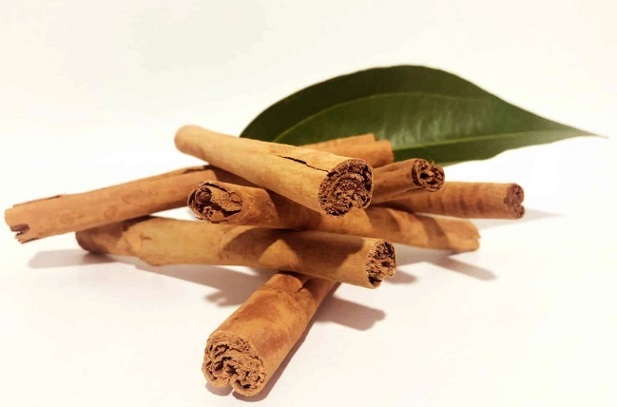Turkish Study Discovers Cinnamic Acid Compounds as a New Antibacterial Hope Against Drug Resistant Infections
Nikhil Prasad Fact checked by:Thailand Medical News Team Jan 15, 2025 2 months, 4 weeks, 1 day, 20 hours, 9 minutes ago
Medical News: In a groundbreaking study by researchers from Akdeniz University in Turkey, three compounds derived from cinnamic acid - p-coumaric acid, ferulic acid, and p-methoxycinnamic acid - have shown significant antibacterial and antibiofilm effects against the deadly colistin-resistant Acinetobacter baumannii (COLR-Ab). These findings may pave the way for developing safer and more effective treatments for one of the most challenging pathogens in healthcare.
 Turkish Study Discovers Cinnamic Acid Compounds as a New Antibacterial Hope Against Drug Resistant Infections
Turkish Study Discovers Cinnamic Acid Compounds as a New Antibacterial Hope Against Drug Resistant Infections
The rise of antimicrobial resistance is a pressing global health issue. Among the resistant bacteria, A. baumannii stands out for its capacity to withstand most antibiotics and cause severe hospital-acquired infections. This
Medical News report highlights the details of a recent study that explored alternative treatments for this resilient bacterium.
Understanding the Threat of Colistin-Resistant A. baumannii
A. baumannii is a Gram-negative bacterium notorious for causing a variety of infections, including ventilator-associated pneumonia, bloodstream infections, and surgical site infections. Its resistance to colistin - a last-resort antibiotic - has made treatment increasingly difficult. Colistin works by disrupting the bacterial membrane, but the emergence of resistant strains has rendered it ineffective in many cases. This has led researchers worldwide to explore novel solutions, such as using natural compounds like cinnamic acid derivatives.
The Role of Cinnamic Acids
Cinnamic acids are secondary metabolites found in plants with known antimicrobial properties.
Cinnamic acids are organic compounds with the formula C6H5-CH=CH-COOH and they occur naturally in a number of plants but most extensively found in cinnamon. Cinnamic acid has a honey-like odor; and its more volatile ethyl ester, ethyl cinnamate, is a flavor component in the essential oil of cinnamon, in which related cinnamaldehyde is the major constituent.
Their structure, comprising a benzene ring and a short hydrocarbon chain, allows them to interact with bacterial membranes effectively. The study aimed to test the efficacy of three specific cinnamic acid derivatives - p-coumaric acid (p-CA), ferulic acid (FA), and p-methoxycinnamic acid (p-MCA) - against five clinical isolates of COLR-Ab.
Key Findings of the Study
The research demonstrated that all three compounds exhibited antibacterial activity against COLR-Ab isolates. The minimum inhibitory concentrations (MICs) for p-CA ranged between 128 - 256 µg/mL, while FA and p-MCA showed MICs in the ranges of 512 - 1024 µg/mL and 128–512 µg/mL, respectively. These results are promising, given the high level of resistance in the tested strains.
Synergistic Effects with Colistin
The researchers tested the combinations of these compounds with colis
tin using a checkerboard synergy test. Remarkably, the combination resulted in a 16- to 128-fold reduction in colistin’s MIC values. This indicates a strong synergistic effect, suggesting that these compounds can restore the efficacy of colistin against resistant strains.
Antibiofilm Activity
A key challenge with A. baumannii is its ability to form biofilms, which protect it from antibiotics and the immune system. Using a crystal violet assay, the study showed that the tested compounds significantly inhibited biofilm formation, with p-CA achieving up to a 77.5% reduction. Even when combined with colistin, the compounds further enhanced biofilm inhibition, offering a dual-action approach to combat this pathogen.
Membrane Damage Mechanism
The study also investigated how these compounds affect bacterial membranes. Spectrophotometric analysis revealed that the compounds caused significant increases in membrane permeability, leading to leakage of intracellular components. Scanning electron microscopy images further confirmed the damage, showing shrunken, deformed bacterial cells with disrupted membranes.
Safety and Cytotoxicity
To assess the safety of these compounds, the researchers tested them on human cell lines, including kidney and endothelial cells. The results showed minimal cytotoxic effects at therapeutic doses, suggesting that these compounds are safe for potential medical use.
Potential Implications
The findings suggest that p-CA, FA, and p-MCA could serve as effective adjuncts to colistin therapy, reducing the dosage needed and minimizing its associated toxicities. Additionally, their ability to inhibit biofilm formation and damage bacterial membranes makes them versatile tools in the fight against antimicrobial resistance.
Conclusion
The study conducted by the Akdeniz University team provides compelling evidence for the potential of cinnamic acid derivatives as powerful antibacterial agents against colistin-resistant A. baumannii. By combining these natural compounds with colistin, it may be possible to restore its effectiveness and reduce the risks associated with high-dose treatments. These findings represent a significant step toward addressing the global challenge of antibiotic resistance. However, further research, including clinical trials, is necessary to confirm their efficacy and safety in real-world applications.
The study findings were published in the peer-reviewed journal: Antibiotics.
https://www.mdpi.com/2079-6382/14/1/71
For the latest on Herbs and Phytochemicals, keep on logging to
Thailand Medical News.
Read Also:
https://www.thailandmedical.news/news/study-finds-that-esters-of-sinapic-acid-a-cinnamic-derivative-exhibits-antiviral-potential-against-oc43-and-sars-cov-2-viruses
https://www.thailandmedical.news/news/cinnamon-extract-offers-hope-for-joint-pain-relief
https://www.thailandmedical.news/news/medical-news-italian-study-shows-that-cinnamaldehyde-from-cinnamon-is-an-effective-adjuvant-for-covid-19-prevention-and-treatment
https://www.thailandmedical.news/news/japanese-study-finds-that-the-flavors-and-fragrance-extracts-of-cinnamon-and-mint-can-protect-against-covid-19
https://www.thailandmedical.news/news/covid-19-herbs-study-finds-that-galangal-cinnamon-spice-mixture-blocks-coronavirus-infection-pathway-through-inhibition-of-sars-cov-2-mpro
https://www.thailandmedical.news/news/italian-study-finds-cinnamaldehyde-is-an-effective-adjuvant-therapeutic-compound-for-reducing-inflammation-in-covid-19
https://www.thailandmedical.news/news/covid-19-herbs-german-american-study-shows-that-cinnamaldehyde-from-cinnamon-is-a-good-supplement-with-dexamethasone-for-treating-covid-19
https://www.thailandmedical.news/news/cinnamon-the-natural-remedy-for-flu-infections-and-beyond
https://www.thailandmedical.news/news/study-shows-curcumin,-cinnamon-and-resveratrol-health-supplements-effective-in-prevention-and-management-of-diabetes
